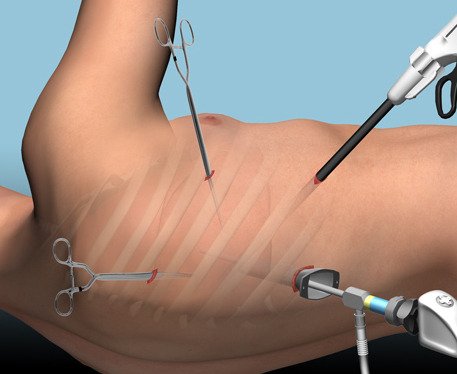Thoracoscopic Esophageal Cancer And Mediastinal Tumor Surgery
Introduction
Thoracoscopic surgery, also known as video-assisted thoracoscopic surgery (VATS), is a minimally invasive surgical technique used to treat conditions within the chest, including esophageal cancer and mediastinal tumors. This approach involves the use of a thoracoscope, a type of endoscope equipped with a camera, which allows surgeons to visualize and operate on internal structures without the need for large incisions.
What is Thoracoscopic Esophageal Cancer And Mediastinal Tumor Surgery?
Thoracoscopic esophageal cancer and mediastinal tumor surgery are minimally invasive procedures performed to treat cancers of the esophagus and tumors located in the mediastinum (the central compartment of the thoracic cavity). These surgeries utilize a thoracoscope, a specialized endoscope equipped with a camera, to provide visual guidance during the operation. The primary goal is to remove the cancerous or tumorous tissue with minimal trauma to the patient.
Types of Thoracoscopic Esophageal Cancer And Mediastinal Tumor Surgery
- Minimally invasive Esophagectomy
- Mediastinal lymph node sampling/dissection
- Thymectomy
- Paliative Procedures
Advantages of Thoracoscopic Esophageal Cancer And Mediastinal Tumor Surgery
Thoracoscopic Esophageal Cancer And Mediastinal Tumor Surgery offers several advantages over traditional open chest surgery, including:
- Minimally Invasive
- Quicker Recovery
- Lower Risk of Complications
- Enhanced Precision
- Improved Postoperative Outcomes

Procedure Overview
Thoracoscopic esophageal cancer and mediastinal tumor surgeries involve a series of well-coordinated steps aimed at minimizing patient trauma while effectively treating the underlying condition. These procedures leverage the advantages of minimally invasive techniques, leading to quicker recoveries, reduced pain, and improved overall outcomes.